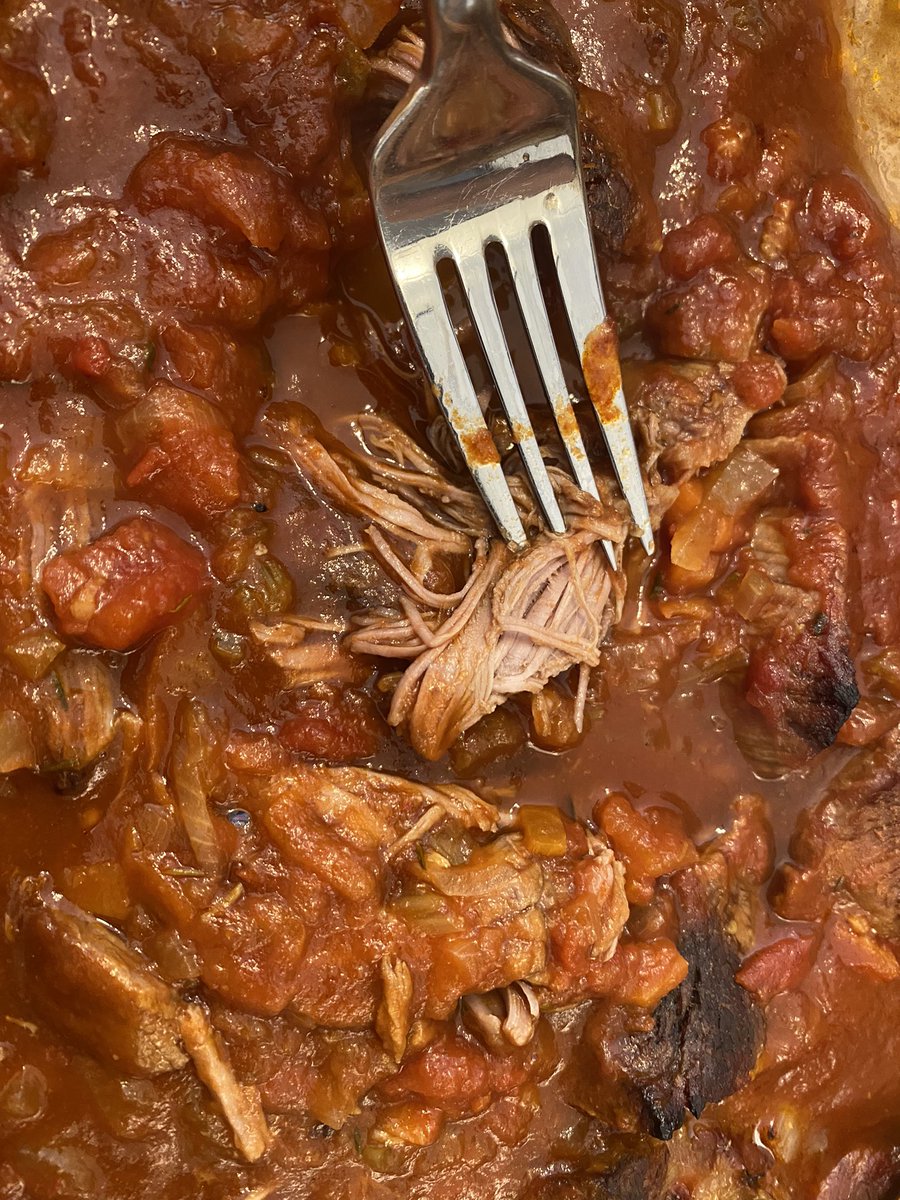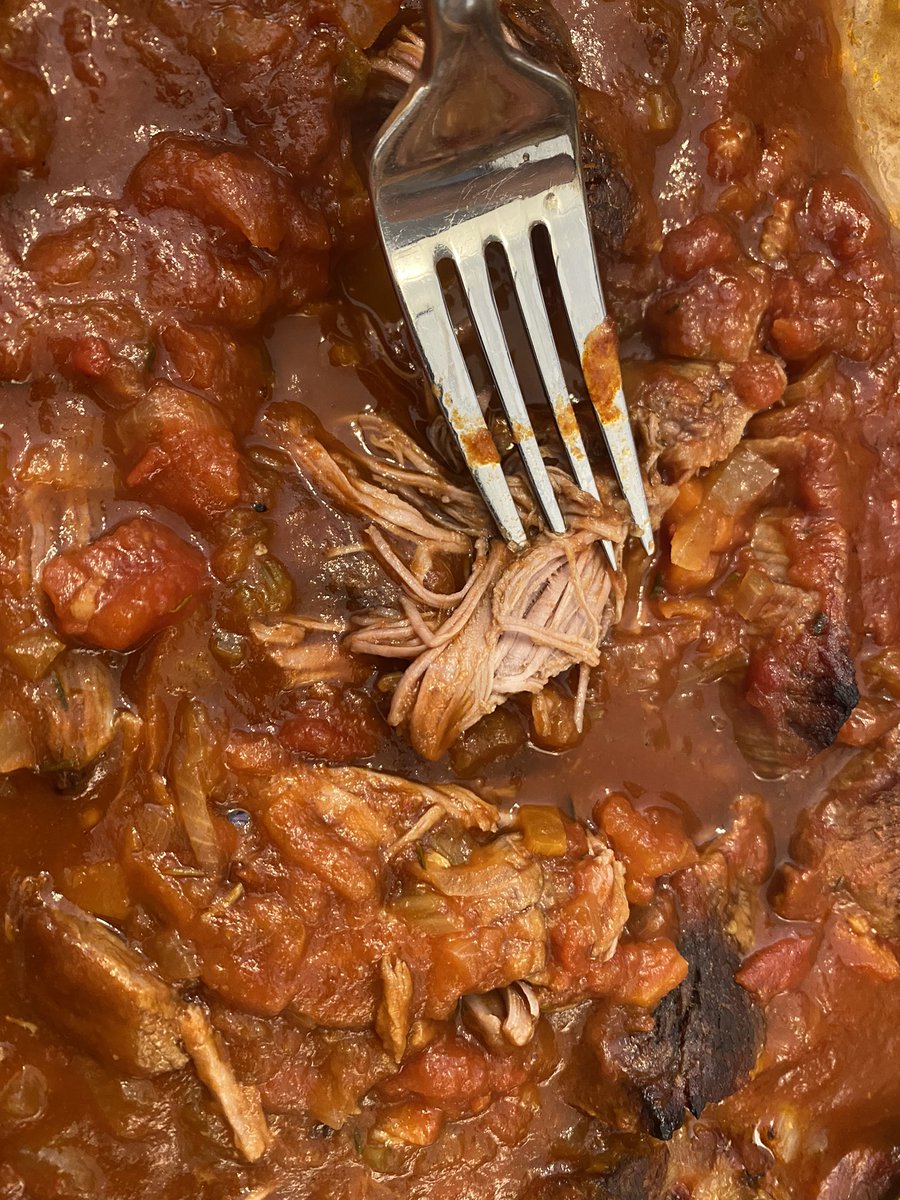Beef slow cooked #ragu with homemade pasta and side salad
#chezfrantzman
Step by step process:
Begin with 2lbs of beef, we used shank but many cuts will work, salt the beef and roughly cut into 2inch chunks.

#chezfrantzman
Step by step process:
Begin with 2lbs of beef, we used shank but many cuts will work, salt the beef and roughly cut into 2inch chunks.


We made two versions of this, one with red wine and one using beef stock; otherwise the ingredients were the same. We did the wine version in a dutch oven over low heat for 2.5 hours on the stovetop, the other we put in the oven for 2.5 hours at 350 F. 





We seared the beef on medium heat with olive oil and salt, adding a bit of chopped red onion, garlic, dried thyme and bay leaf. As it browned and gave off its liquid we removed it; we poured in a half cup of red wine (or beef stock) then we added finely two large chopped carrots 







two large finely chopped celery stalks, two bay leafs, one finely chopped red onion, one half finely chopped large yellow onion; three cloves of garlic minced; more salt; as this cooks down we added a cup of red wine/stock and then 4 tbsp tomato paste, 1 finely chopped tomato,
1.5 cups tomato pasata; return the meat and begin to cook down. After an hour check it and add water as needed. We added half a cup of chicken stock after two hours. 



We removed it from the heat and pulled the meat, then returned it for half an hour to the heat.
Meanwhile we began to make our pasts. 1.5 cups of white flour, 2.5 eggs, tablespoon of olive oil and dash of kosher salt.


Meanwhile we began to make our pasts. 1.5 cups of white flour, 2.5 eggs, tablespoon of olive oil and dash of kosher salt.



We kneaded this into dough and set aside wrapped in saran wrap for half an hour. We then formed it into a flat oval and used our pasta maker to roll it out as necessary, making tagliatelle. We set this aside for 10 minutes and then put it in boiling water for 1 minute 



then into a pan for quick fry with olive oil and 2 cups of the ragu and dash of garlic; then served with parmesan.
Served with side Caesar salad via @kasaey



Served with side Caesar salad via @kasaey




• • •
Missing some Tweet in this thread? You can try to
force a refresh







